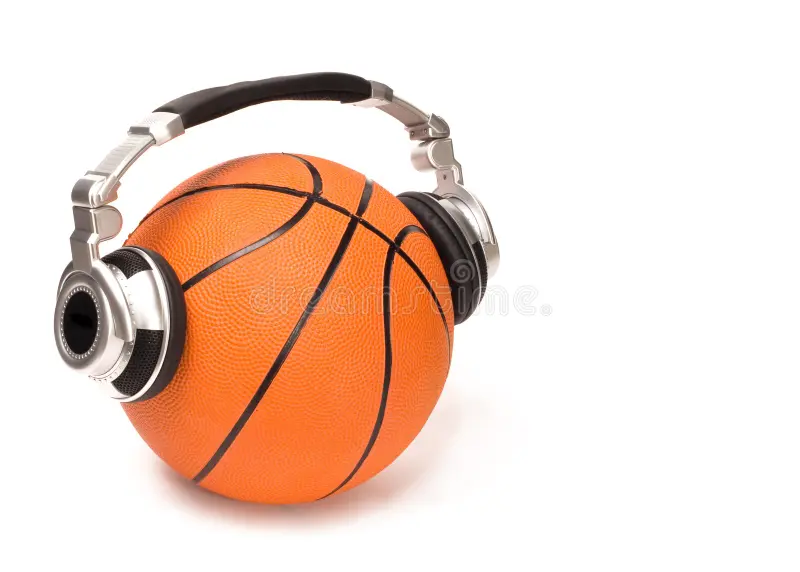PENN
Homestead
14
6
Boys Lacrosse
PENN
St. Joseph
158
162
Boys Golf
PENN
Mishawaka
4
3
Baseball
PENN
Mishawaka
17
1
JV Baseball
PENN
Avon
32
27
Boys Rugby
PENN
Carmel
9
6
Softball
PENN
Crown Point
13
10
Boys Lacrosse
PENN
St. Joseph
80
52
Boys Track & Field
PENN
St. Joseph
105.5
26.5
Girls Track & Field
PENN
Concord
51
19
Girls Basketball Sectional
PENN
Sectional
1st
Wrestling
PENN
NIC Meet
1st
Swim/Dive
PENN
Goshen
60
57
Boys Basketball
PENN
S.B. Riley
66
54
Boys Basketball
PENN
NorthWood
67
39
Girls Basketball
PENN
Northridge
57
49
Boys Basketball
PENN
Jimtown
35
31
Boys Basketball
PENN
S.B. Adams
146
40
Boys Swim/Dive
PENN
S.B. Adams
147
36
Girls Swim/Dive
PENN
St. Joseph
56
36
Girls Basketball
PENN
NIC
1st
Inv.
Swim/Dive
PENN
NIC
1st
Inv.
Wrestling
PENN
Carroll
72
68
Boys Basketball
PENN
Carroll
68
72
Girls Basketball
PENN
Elkhart
Boys Swimming
PENN
Elkhart
148
38
Girls Swimming
PENN
Warsaw
31
10
Football
PENN
Elkhart
35
0
Football
PENN
Mishawaka
5
0
Boys Tennis
PENN
NIC
1st
Meet
Boys XC
PENN
NIC
1st
Meet
Girls XC
PENN
St. Joseph
3
0
Volleyball
PENN
St. Joseph
28
0
Football
PENN
Minutemen
1st
Inv.
Girls XC
PENN
Lake Central
5
0
Boys Tennis
PENN
Valparaiso
5
0
Boys Soccer
PENN
Elkhart
3
2
Volleyball
PENN
Morton
35
0
Football
PENN
Mishawaka
28
7
Football
PENN
Brebeuf
1
0
Girls Soccer
PENN
NIC
1st
Inv.
Girls Golf
PENN
NIC Stomp
1st
Inv.
Girls XC
PENN
NIC Stomp
1st
Inv.
Boys XC
PENN
Northridge
4
1
Boys Tennis
PENN
Munster
3
1
Boys Soccer
PENN
Ev. Memorial
2
0
Girls Soccer
PENN
Valparaiso
38
21
Football
PENN
Valpo
7
6
Frosh Football
PENN
NorthWood
9
0
JV Girls Soccer
PENN
Elkhart
170
252
Girls Golf
PENN
New Prairie
170
197
Girls Golf
PENN
Homestead
2
2
Boys Soccer
PENN
Valley
3rd
Inv.
Girls XC
PENN
Western
2nd
Inv.
Girls Golf
New Prairie
PENN
Inv.
1st
Girls Golf
PENN
St. Joseph
167
197
Girls Golf
PENN
Bremen
167
232
Girls Golf
PENN
Jimtown
174
NTS
Girls Golf
PENN
S.B. Riley
174
NTS
Girls Golf
NorthWood
PENN
Inv.
1st
Girls Golf
Penn
PENN
Inv.
1st
Girls Golf
Homestead
PENN
Inv.
2nd
Girls Golf
PENN
Center Grove
2
0
Baseball State
PENN
Roncalli
2
1
Softball State
PENN
Hamilton SE
1
0
Baseball Semi-state
PENN
Lake Central
7
6
Baseball Semi-state
PENN
Lake Central
5
1
Softball Semi-state
PENN
W. Laf. Harrison
4
3
Softball Semi-state
PENN
LaPorte
6
2
Baseball Regional
PENN
St. Joseph
3
0
Softball Regional
PENN
State
4th
0
Unified Track
PENN
Regional
1st
Boys Track
PENN
1st
Sectional
Boys Track
PENN
Sectional
1st
Boys Golf
PENN
Sectional
1st
Girls Track
PENN
NIC
1st
Meet
Girls Cross Country
PENN
NIC
1st
Meet
Boys Cross Country
PENN
St. Joe
40
0
Football
PENN
Marian
5
0
Boys Tennis
PENN
Regional
1st
Girls Golf
PENN
Marian
42
3
Football
PENN
St. Joseph
2
3
Boys Soccer
PENN
S.B. Adams
1
0
Boys Soccer
PENN
NIC meet
1st
0
Girls Golf
PENN
Valparaiso
4
0
Boys Soccer
PENN
Adams
3
0
Girls Soccer
PENN
Concord Inv.
1st
0
Girls XC
PENN
Wildcat Inv.
1st
Boys XC
PENN
NorthWood
5
0
Boys Tennis
PENN
Crown Point
5
0
Boys Tennis
PENN
Marion
5
0
Boys Tennis
PENN
Northridge
4
1
Boys Tennis
PENN
Munster
2
0
Volleyball
PENN
Bishop Noll
2
0
Volleyball
PENN
NorthWood
2
1
Volleyball
PENN
NIC Stomp
1st
Girls XC
PENN
NIC Stomp
1st
Boys XC
PENN
Valparaiso
35
6
Football
PENN
Cathedral
3
0
Baseball
PENN
S.B. Adams
101
22
Girls Track & Field
PENN
S.B. Adams
103
29
Boys Track & Field
PENN
Elkhart
2
0
Baseball
PENN
Elkhart
18
1
Softball
PENN
Northridge
16
2
Girls LAX
PENN
Carmel
36
0
Rugby
PENN
Northridge
1st
Relays
Girls Track & Field
PENN
Crown Point
6
4
Softball
PENN
Crown Point
8
4
Baseball
PENN
Crown Point
9
2
Baseball
PENN
Mishawaka
85
47
Boys Track & Field
PENN
Northridge
6
2
Baseball
PENN
Concord
68
44
Boys Basketball
PENN
Northridge
60
47
Boys Basketball
PENN
Warsaw
67
56
Boys Basketball
PENN
Merrillville
70
49
Boys Basketball
PENN
Mishawaka
78
47
Boys Basketball
PENN
Sectional
1st
Boys Swim/Dive
PENN
State Finals
7th
Wrestling
PENN
Elkhart
79
60
Boys Basketball
PENN
Plymouth
67
48
Boys Basketball
PENN
St. Joseph
2
1
Hockey
PENN
Washington
69
63
Boys Basketball
PENN
Northridge
61
48
Girls Basketball
PENN
Goshen
70
45
Boys Basketball
PENN
Riley
76
57
Boys Basketball
PENN
NIC
1st
Meet
Boys Swim/Dive
PENN
Sectional
1st
Meet
Wrestling
PENN
Northridge
66
57
Boys Basketball
PENN
Adams
139
47
Girls Swim/Dive
PENN
Adams
142
38
Boys Swim/Dive
PENN
State
1st
Champs
Girls Wrestling
PENN
NIC
1st
Invite
Wrestling
PENN
Jimtown
62
36
Boys Basketball
PENN
NIC
1st
Invite
Girls Swim/Dive
PENN
Jimtown
69
14
Girls Basketball
PENN
Warsaw
71
59
Girls Basketball
PENN
Regional
1st
Girls Wrestling
PENN
St. Joseph
68
42
Girls Basketball
PENN
St. Joseph
73
56
Boys Basketball
PENN
Clay
149
19
Boys Swimming
PENN
Clay
145
27
Girls Swimming
PENN
St. Joe
142
34
Boys Swim/Dive
PENN
St. Joe
135
43
Girls Swim/Dive
PENN
New Prairie
68
27
Girls Basketball
PENN
Valparaiso
40
33
Girls Basketball
PENN
Mishawaka
39
34
Wrestling
PENN
New Prairie
104
33
Boys Basketball
PENN
Crown Point
52
48
Boys Basketball
PENN
Munster
1st
Inv.
Boys Swimming
PENN
Munster
1st
Inv.
Girls Swimming
PENN
Clay
84
45
Boys Basketball
PENN
Northridge
117
63
Boys Swim/Dive
PENN
Northridge
120
66
Girls Swim/Dive
PENN
Adams
52
48
Girls Basketball
PENN
Carroll
70
52
Boys Basketball
PENN
Carroll
47
40
Girls Basketball
PENN
Munster
104
81
Boys Swimming
PENN
Munster
128
58
Girls Swimming
PENN
Chesterton
10
7
Football
PENN
Elkhart
21
7
Football
PENN
Munster
3
1
Volleyball
PENN
Riley
5
4
Hockey
PENN
Adams
4
3
Hockey
PENN
Warsaw
3
0
Volleyball
PENN
IHSAA
1st
Reg.
Girls Cross Country
PENN
IHSAA
3rd
Reg.
Girls Cross Country
PENN
Concord
3
0
Volleyball
PENN
Adams
38
0
Football
PENN
Goshen
3
0
Volleyball
PENN
Goshen
3
0
Volleyball
PENN
LaPorte
4
1
Boys Tennis
PENN
Adams
4
1
Boys Tennis
PENN
Marian
5
0
Boys Tennis
PENN
Goshen
4
0
Boys Soccer
PENN
Northridge
3
1
Boys Soccer
PENN
Goshen
4
0
Girls Soccer
PENN
Concord
3
0
Girls Soccer
PENN
Carmel
29
7
Rugby
PENN
Fishers
2
2
Boys Soccer
PENN
Columbus N.
2
0
Boys Soccer
PENN
Marian
35
0
Football
PENN
Elkhart
21
6
Frosh Football
PENN
Bremen
3
0
Volleyball
PENN
Marian
3
1
Volleyball
PENN
Elkhart
31
3
Football
PENN
New Castle
2
0
Volleyball
PENN
Brownsburg
2
0
Volleyball
PENN
Fishers
2
0
Volleyball
PENN
Sectional
1st
Trny.
Girls Golf
PENN
Adams
3
0
Volleyball
PENN
Elkhart
6
1
Boys Soccer
PENN
Crown Point
3
1
Boys Soccer
PENN
Carroll
3
1
Boys Soccer
PENN
Wildcat
4th
Classic
Boys XC
PENN
Minutemen
1st
Invite
Girls XC
PENN
St. Xavier
10
41
Football
PENN
New Prairie
26
8
Frosh Football
PENN
Warsaw
4
1
Boys Soccer
PENN
Elkhart
4
1
Girls Soccer
PENN
NorthWood
4
1
Boys Tennis
PENN
Elkhart
Volleyball
PENN
Washington
3
0
Volleyball
PENN
NIC
1st
Tourn.
Girls Golf
PENN
Manchester
1st
Invite
Boys XC
PENN
Marion
3rd
Invite
Girls XC
PENN
Marian
5
1
Boys Soccer
PENN
Glenn
3
0
Volleyball
PENN
Riley
3
0
Volleyball
PENN
Chesterton
1
1
Boys Soccer
PENN
Marian
2
1
Girls Soccer
PENN
Adams
4
1
Boys Tennis
PENN
Chesterton
1
1
Boys Soccer
PENN
Jimtown
5
0
Boys Tennis
PENN
Adams
177
211
Girls Golf
PENN
Munster
6
1
Girls Soccer
PENN
Mun. Burris
2
0
Volleyball
PENN
Valparaiso
2
0
Volleyball
PENN
Plymouth
2
0
Volleyball
PENN
McCutcheon
2
1
Volleyball
PENN
LaPorte
33
0
JV Football
PENN
Lake Central
4
0
Boys Soccer
PENN
PENN
2nd
Invite
Girls XC
PENN
Penn
1st
Invite
Boys XC
PENN
LaPorte
14
21
Football
PENN
Concord
3
1
Boys Soccer
PENN
LaPorte
21
6
Frosh Football
PENN
Warsaw
3
1
Volleyball
PENN
Valpo
26
7
JV Football
PENN
Valparaiso
5
0
Boys Tennis
PENN
Concord
3
0
Girls Soccer
PENN
Glenn
184
194
Girls Golf
PENN
Rochester
2nd
Inv.
Girls Golf
PENN
Munster
3
2
Boys Soccer
PENN
Rochester
2nd
Inv.
Girls Golf
PENN
Valparaiso
26
7
JV Football
PENN
NIC
2nd
Stomp
Girls XC 11-12
PENN
NIC
2nd
Stomp
Girls XC 9-10
PENN
NIC
1st
Stomp
Boys XC 11-12
PENN
NIC
1st
Stomp
Boys XC 9-10
PENN
Valparaiso
3
1
Girls Soccer
PENN
Homestead
0
2
Girls Soccer
PENN
Northridge
6
0
Girls Soccer
PENN
Lake Central
2
0
Volleyball
PENN
Crown Point
2
1
Volleyball
PENN
Carroll
2
0
Volleyball
PENN
Bishop Noll
2
0
Volleyball
PENN
Valparaiso
7
35
Football
PENN
Marion
5
0
Boys Soccer
PENN
Northridge
2
3
Boys Tennis
PENN
Crown Point
3
2
Boys Tennis
PENN
Mishawaka
174
229
Girls Golf
PENN
Elkhart
175
227
Girls Golf
PENN
New Prairie
175
199
Girls Golf
PENN
NorthWood
3
0
Volleyball
PENN
Carroll
1
1
Girls Soccer
PENN
Northridge
2
3
Boys Soccer
PENN
LaPorte
3
0
Volleyball
PENN
Dwenger
3
0
Volleyball
PENN
Homestead
2
0
Boys Soccer
PENN
Homestead
3
0
JV Boys Soccer
PENN
Homestead
0
3
JV Boys Soccer
PENN
Western
2nd
Inv.
Girls Golf
PENN
New Prairie
1st
Inv.
Girls Golf
PENN
Bremen
173
253
Girls Golf
PENN
State
10th
Inv.
Girls Golf
PENN
NorthWood
2nd
Inv.
Girls Golf
PENN
Kingsmen
1st
Inv.
Girls Golf
PENN
Homestead
2nd
Inv.
Girls Golf
PENN
IHSAA
1st
Reg.
Boys Track
PENN
Northridge
5
3
Softball
PENN
Mishawaka
14
6
Baseball
South
Penn
1
12
Hockey
South
Penn
1
6
Hockey
Westfield
Penn
1
9
Hockey
Laporte
Penn
17
61
Girl's Basketball
Warsaw
Penn
0
3
Volleyball
Adams
Penn
14
53
Boy's Football
Noll
Penn
2
6
Final
Vipers
Penn
2
3
Final
St. Joseph
Penn
2
Final
Evansville
Penn
2
5
Final

The art of music has been utilized by humans for tens of thousands of years. Although it is still uncertain exactly how the brain works and why music affects us exactly the way it does, there have been many studies that have shown evidence of music improving performance specifically in the sports world.
Have you ever wondered how and why music makes you feel the way you do?
Within the sports world at Penn High School, music is played around every corner, whether it be in the locker room before practice, echoing through the weight room, and setting the mood before games. Exploring deeper, this short article aims to uncover what exactly is happening inside the complex human brain.
Music activates just about all parts of the brain and that includes the major brain regions that are critical for athletic performance. Sports psychologist Dr. Karageorghis has spent over 25 years studying how music can improve sports performance and he has found that music is able to reach parts of the brain that are difficult to stimulate.
One of the regions that turns on when music is played is the parietal lobe and inside of it is the motor cortex. The Buckingham Browne & Nichols’ STEM Magazine reports on the function of the parietal lobe, “The motor cortex is responsible for helping us coordinate our legs and arms while running or helping us throw a ball straight.”
This is significant because every sport requires coordination through the arms and legs. Another part of the brain that responds to music is the temporal lobe. According to the report, “In this part of the brain, the stress hormone cortisol is released; since music can activate the temporal lobe, it helps regulate stress by reducing cortisol levels.”
Because music affects this part of the brain, it can help calm an athlete‘s mind before a big game or a race, thus having a positive effect.
Penn Track Athlete Collin Smagala said, “Music really hypes me up before a race.”
The frontal lobe and cerebellum, which regulate emotion, are also activated by music. As stated by the magazine, “In the frontal lobe, music taps into the brain’s secretion of natural chemicals, like dopamine and natural opioids, to help block our perception of pain and fatigue.” In other words, music can distract an athlete from pain because the brain is diverted by the music. As seen through this report, music is a superpower that can easily be utilized to help with coordination, stress levels, and pain levels, all of which can help an athlete train harder and perform better.
Penn Track Athlete Kohen Turner shares his top five playlist below:
Works Cited
Wu, Allison. “Does Music Improve Athletic Performance?” Current Happenings Across STEM Magazine, 28 Mar. 2021, https://bbnchasm.com/2021/03/28/does-music-improve-athletic-performance/.






